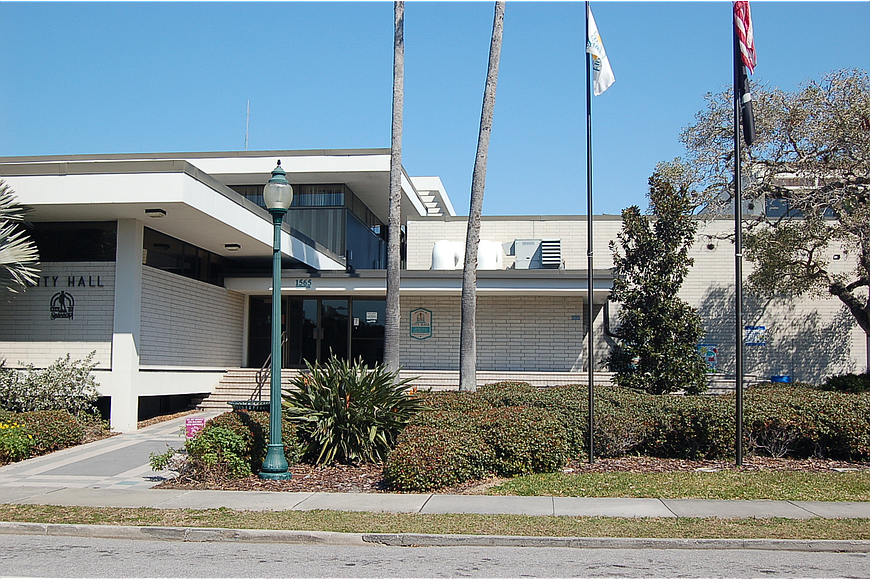- October 23, 2024
-
-
Loading

Loading

Since 2016, the resident activist group STOP has pushed the city to change its development review policies and hold public hearings on most new downtown projects.
On Monday, the City Commission agreed to reconsider how it approves downtown developments — though it stopped short of endorsing STOP’s emphasis on more public hearings.
Instead, the commission unanimously directed city staff to take three to four months to conduct a broad analysis of how the city can improve its development review procedures. Staff intends to report back to the commission with a series of recommendations later this year.
From its inception, STOP has criticized the city’s use of administrative development review. Expanded downtown in 2004, the policy has allowed city staff to approve new projects without public hearings as long as the proposal is determined to comply with the standards in the code.
In January, STOP presented the city with a proposed zoning text amendment that would limit staff’s ability to use administrative review downtown. Mirroring the regulations outside of the downtown districts, any new projects larger than eight residential units or 10,000 square feet of commercial space would require public hearings in front of the planning board.
The group said it drafted the proposal as a starting point, hoping to get the city to prioritize the consideration of a policy change on administrative approval. It argued public hearings were the best avenue for incorporating increased public input on new projects.
“Downtown residents should not have to endure being second-class citizens,” STOP steering committee member Kate Lowman said.
Four members of the development and planning community spoke at Monday’s meeting opposing a return to the public hearing process. Developers Andy Dorr and Jay Tallman said they would welcome a requirement to hold informal community workshops before submitting plans for staff to review.
But they saw holding public hearings in front of the Planning Board — a city advisory board comprised of five appointed volunteers — as a shift to a less reliable process.
“Who best to evaluate whether something meets the code or it doesn’t meet the code than a professionally trained staff?” Tallman said.
Although STOP argued the quality of development under administrative review justified a return to public hearings, planner Chris Gallagher disputed that narrative.
“If you go to the STOP literature, they talk on and on about this ‘failed experiment,’” Gallagher said. “You have one of the most extraordinary downtowns in America.”
Rather than focus specifically on administrative review, city staff advocated for a more general consideration of changes to development review policies. Tim Litchet, the city’s director of development services, said there are probably cases where there should be more public input on large projects — but there are also issues with small projects that require unnecessary public hearings.
Both Litchet and Planning Director Steve Cover emphasized the need for a clear, predictable and logical process for reviewing various development-related proposals.
“I don’t think the blanket thresholds we have now do us all too much justice,” Litchet said.
City Commissioner Jen Ahearn-Koch, a founding member of STOP before her election to the commission, initially pushed the board to pursue a more aggressive timeline for considering changes than staff recommended. The rest of the board accepted staff’s proposed timeline, with several commissioners expressing a desire to carefully study the ramifications of different options for increased public input.
“I think everyone’s clear on the idea that more public input is better,” Commissioner Shelli Freeland Eddie said. “The question is: How do we get there?”
Commissioner Hagen Brody said he’d prefer to focus on a community workshop requirement, expressing skepticism about the benefits of holding more public hearings. Brody said both city staff and the Planning Board would be required to enforce the same zoning standards when considering whether to approve a project. If residents have issues with new buildings, he said the city should instead be focused on changing regulations, not review procedures.
“If you want to have that conversation, I am fully open,” Brody said. “But we’re expending a lot of effort on this process, and I’m afraid so many people think it’s somehow going to cure the way they feel the building is not being built right.”
Although it’s unclear what form any proposed changes will eventually take, officials were optimistic the city would ultimately improve its development procedures.
“I want a clearly well-written process where there’s predictability, where there’s clarity of the expectations, clarity on how long the process is going to take,” Mayor Liz Alpert said. “I think that makes perfect sense.”
Also at Monday’s City Commission meeting: